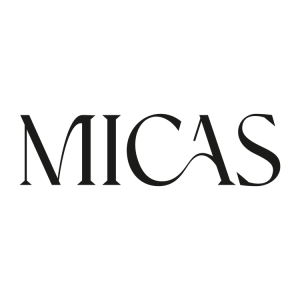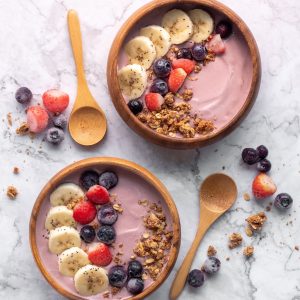Collagen is the most plentiful protein in the body. It has crucial roles, including providing suppleness and structure to your skin and helping your blood clot.
It’s a wrinkle-preventing protein that our bodies produce naturally to keep our skin plump, supple, and firm. Responsible for smoothing fine lines and wrinkles, it provides a structural net for the skin, which makes it resilient, strong, and elastic. Collagen is the “glue” that holds the body together; muscles, tendons, skin, bones, and ligaments. In fact, the word comes from the Greek word “kólla” which means glue.
As we age, collagen starts to diminish, and your body produces less, and lower-quality collagen. We lose about 1% of collagen per year in our mid-20s and as much as 30% during the first 5 years of menopause. As a result the skin becomes thinner and more fragile. So, you ask again, How can I restore the Collagen in My Face?
Injecting collagen used to be the rage, but collagen injections do not last very long and can cause allergic reactions. However, we can defy the aging process by following these 6 steps that will stimulate your collagen and give your face a smooth, radiant glow.
6 steps you can take to stimulate your collagen
Facial Massage
A simple massage can both strengthen muscle memory and stimulate collagen production. Gently massaging your facial muscles daily can lift, tone and tighten the skin, boost blood circulation and collagen production, giving the skin a refreshed and more youthful appearance. Simply apply moderate (not heavy) pressure in circular movements, inwardly, along the cheeks, chin, and forehead.
Facial massage helps in the prevention of fine lines and new wrinkle formation, while at the same time helps in tightening the skin and making it nice and elastic again. Strengthening the muscles on the face is very important in stimulating collagen. If we do not massage or exercise them, they will be weakened, which will reflect on the skin.
What does a collagen face cream do? The collagen molecule is large and cannot actually penetrate the skin; it just sits on the surface. That’s why you need to find a collagen cream with amino acids that are small enough to get to the deeper layers of the dermis. SARAH’S Deep Wrinkle, Anti Aging Pearl Cream blends nanotechnology with marine magic with an ultra absorbable delivery system. By shrinking the collagen molecule with nanotechnology, Conchiolin, (the protein in pearl that promotes healthy collagen), in Pearl Cream is able to penetrate to the dermis and stimulate collagen production.
Use sunscreens to block skin exposure to UV radiation, Vitamin A to promote collagen production, and antioxidants to reduce and neutralize free radicals. Then use cell regulators! Vitamin A is a key regulator for cell growth, and peptides are natural regulators of cell signaling. These cell regulators act directly on the collagen metabolism and stimulate the production of collagen and elastic fibers. Through topical application, peptides have the ability to stimulate collagen synthesis and activate dermal metabolism.
Diet
Diet is extremely important. Eat beans, cabbage, and garlic. These foods are rich in Sulfur that helps synthesize and prevent the breakdown of collagen, and maintains the skin’s natural healthy pigmentation. Protein-rich foods, like meat, eggs, fish and seafood, and dairy will supply your body with a range of amino acids needed to make collagen. Bone broth and gelatin are other foods that are collagen-rich.
Vitamin C plays a major role in the production of collagen, it is the body’s precursor to collagen. Eating foods high in Vitamin C helps the body to reduce oxidative damage. Not only will Vitamin C help to stimulate collagen, it also gives your immune system a boost. Therefore, getting enough vitamin C is critical.
Berries are another excellent source of Vitamin C, plus berries are high in antioxidants, which protect the skin from damage. Strawberries actually provide more vitamin C than oranges. Raspberries, blueberries, and blackberries offer a hefty dose, too.
Tropical Fruits like mango, kiwi, pineapple, and guava are rich in Vitamin C. Guava boasts a small amount of zinc, another co-factor for collagen production. And one medium tomato can provide up to almost 30 percent of Vitamin C for collagen. Tomatoes also boast large amounts of lycopene, a powerful antioxidant for skin support.
Leafy greens like spinach, kale, Swiss chard, and other salad greens get their color from chlorophyll, known for their antioxidant properties. Some studies have shown that consuming chlorophyll increases collagen in the skin. While you’re putting tomatoes on a sandwich or adding them to a salad, toss in some red bell peppers. These delicious high-vitamin C veggies contain capsaicin, an anti-inflammatory compound that can help combat signs of aging.
Supplements
According to studies, supplemental collagen may help improve skin texture and muscle mass and reduce osteoarthritis pain. In a 2014 study, women who took a supplement showed improvements in skin elasticity. Collagen used in topical treatments can improve the appearance of skin by minimizing lines and wrinkles.
Collagen peptide comes in a powder that can be easily incorporated into foods. The peptide form does not gel, so you can mix it into smoothies, juices, puddings, malts, ice box desserts etc, without affecting the texture.
When considering supplements, you should look for a high-quality source. Pearl Powder collagen, which is finely milled pearls, is also available. Studies show that collagen in Pearl Powder improves skin quality, muscle function and reduces the pain associated with osteoarthritis.
http://pearl-powder.net
Stop Smoking and Reduce Sugar
Everyone knows that smoking is bad for you, but did you know that smoking reduces collagen production. This can obstruct wound healing and lead to dull, dry, leathery skin and wrinkles. Sugar has the same effect. It reduces collagen’s ability to repair itself. Sugar attaches to the collagen molecule and makes it heavy. When collagen is weighed down by glucose, it becomes rigid and inflexible, resulting in dull, dry, and aging skin.
Keep Skin Hydrated
Keeping your skin hydrated is critical for soft, supple skin. Drink at least 4, 6 oz glasses of milk (milk will supply your body with a range of amino acids needed to make collagen) or water each day to help with collagen production. Also, choose skincare that boosts hydration, such as Sarah’s Pearl Cream. http://pearl-powder.net/cream.htm
This luxurious hydrating cream is loaded with hyaluronic acid. Hyaluronic acid absorbs 1000 times its weight in water and keeps your tissues lubricated and moist. When your skin is fully hydrated, it provides a great environment for collagen and elastin to thrive.









